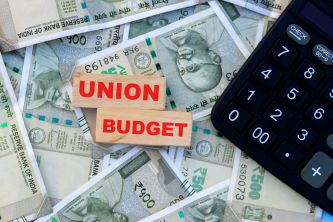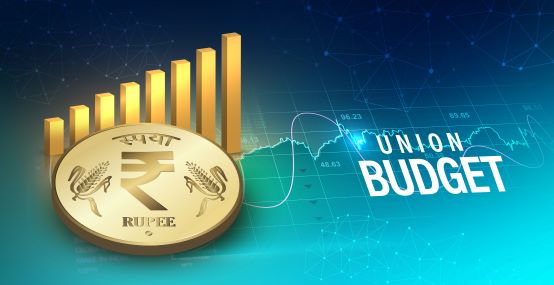What is Populist Budget

Introduction
Every year, on the first of February, the Finance Minister of India presents the Union Budget in Parliament. That budget is also known as the annual financial statement of India, and it contains the details of the revenue sources and expenses to be undertaken by the Government during the applicable financial year.
In other words, the Union Budget of India keeps an account of the Government's finances for the upcoming fiscal year, i.e., the period between 1st April to 31st March. It acts as the Government's roadmap for fund collection and allocation during this period.
The importance of Union Budget
Since India is a democratic country, it is governed as per the Constitution of India. The constitution defines the role of the Central Government so that it can function efficiently for the welfare of its citizens. The Government has a wide range of responsibilities, including administering a country, maintaining law and order, ensuring national security, promoting social welfare, and improving economic stability.
However, the Government needs adequate resources and planning to carry out these tasks. It collects revenues by imposing taxes on its citizens and may take loans from foreign countries and the Reserve Bank of India (RBI).
Government proposes a Union Budget every year, which contains the details about how and where they plan to spend the accumulated revenues.
The overall objective of a Union Budget is to maintain a balance between society's economic growth and overall development. It aims to reduce the economic inequalities between the citizens and ensure proper allocation of Government resources. Below are some targets that the Government plans to achieve while presenting the Union Budget:
- Efficient allocation of resources
- Reduce unemployment and poverty
- Reduce economic inequality in the society
- Keep a check on prices
- Rationalise the tax structure
The two types of Budgets
There are two types of Budgets – a Populist Budget and a Progressive Budget. A populist budget is the one that is aimed at pleasing the people, whereas a progressive budget is the one that aims to strengthen economic growth. As mentioned before, the Government always seeks to balance the two while presenting the Union Budget.
However, sometimes the budget can show more inclination towards populism especially if general elections are in near term, and such a budget is called a populist budget. Let's find out what is a populist budget and how it can impact the economy.
What is a Populist Budget?
As mentioned, a populist budget is the one that is typically meant to please the people. Such a budget spends more on lucrative schemes that can increase the government's fiscal deficit and push up the inflation rate. Examples of such schemes include waiving off farm loans, relaxing the existing tax structure, giving high procurement prices for agriculture produce, etc.
The positive aspect of a populist budget is that it can provide a sudden boost to the markets by increasing the demand for commodities.
Impact on the economy
A populist budget mainly revolves around the general concerns of the public. However, it does little to strengthen the overall economic growth of the country. Such a budget can increase the pressure on the Government's balance sheet and also augment the country's fiscal deficit. Hence, we cannot consider it to be good for the economy. This is also the reason why economic experts usually oppose the populist budget.
Conclusion
Although a populist budget can provide a short-term boost to the markets, it is not good for the country's long-term economic growth. Governments usually present a populist budget to please the general public before the elections. However, with proper planning and focus on the quality of spending, a budget can be made popular without being populist.
Disclaimer - CICI Securities Ltd. ( I-Sec). Registered office of I-Sec is at ICICI Securities Ltd. - ICICI Venture House, Appasaheb Marathe Marg, Prabhadevi, Mumbai - 400 025, India, Tel No : 022 - 6807 7100. The contents herein above shall not be considered as an invitation or persuasion to trade or invest. I-Sec and affiliates accept no liabilities for any loss or damage of any kind arising out of any actions taken in reliance thereon. The contents herein above are solely for informational purpose and may not be used or considered as an offer document or solicitation of offer to buy or sell or subscribe for securities or other financial instruments or any other product. Investments in securities market are subject to market risks, read all the related documents carefully before investing. The contents herein mentioned are solely for informational and educational purpose.
Please Enter Email
Thank you.
Related content

Articles - Personal Finance
What is PM Gati Shakti Yojana
Hon'ble Finance Minister Nirmala Sitharaman unveiled three major economic railway corridors in the interim budget of 2024 for the PM Gati Shakti Yojana. Explore detailed information about PM Gati Shakti Yojana.

Articles - Personal Finance
Analysis of Interim Budget 2024
Get to knwo about the impact of interim budget 2024 and a detailed analysis in this article.

Articles - Personal Finance
What Is a Surplus Budget
Learn about surplus budget and how a budget surplus impacts the economony.

Articles - Personal Finance
What is a Budget Deficit
Find out the importance of budget deficit. Cause of budget deficit and What is the relationship between budget deficit and stock markets

Articles - Personal Finance
Union Budget 2024 – Trivia Part 2
The Union budget 2024 presentation is just around the corner. Let us look at some trivia regarding the Union budgets from the past

Articles - Personal Finance
What is Union Budget and Why it so Important
Learn about the what is the Union Budget in this article for a comprehensive information of its importance.

Articles - Personal Finance
Union Budget: Key Details & Importance
As we come closer to February 1, the chatter around the expectations over Union Budget increases. From young college students looking to start their careers and small business owners to leading economists and industrialists, almost every Indian citizen keeps a tab on the Budget announcement. Let us discuss what is Union Budget and its importance for the economy.

Articles - Personal Finance
Impact of the Budget 2024 on Share Markets
The Union Budget 2024 got quite a cheer from the share market as major indices ended on a positive note. The NIFTY 50 and the Sensex benchmark indices gained during the Budget speech and finished green.

Articles - Personal Finance
What to Expect From Budget 2022 for Individuals and Salaried People
Over the last two years, individuals, especially salaried people, have taken quite a hit because of the pandemic. Work from home has not only increased expenses such as electricity and WiFi bills but has also put a strain on take-home salary. Naturally, people hope that the government will step in and ease some of these troubles through their Union Budget announcements.

Articles - Personal Finance
What is the impact of the Union Budget on the Indian Stock Markets
Indian stock markets are dynamic prone to ups and downs depending on a host of factors. Every year, one major event that impacts the equities and bond markets is the announcement of the Union Budget.

Articles - Personal Finance
History of the Union Budget in India
The ritual of presenting the Indian Budget is more than two centuries old, dating back to colonial times. India's first-ever Budget was presented by James Wilson in 1860, a Scottish economist and politician.

Articles - Personal Finance
10 Taxes Affected by Budget
Taxes are the most crucial and most significant source of revenue for the Government. The Government uses the revenues generated from taxes to provide basic facilities to its citizens and the nation's overall development. For example, construction of roads, buildings, infrastructure, public healthcare facilities, providing various subsidies, etc.

Articles - Personal Finance
What are the Components of Union Budget
The Union Budget of India has two main components, each with two sub-components. To know more in detail, visit the link.

Articles - Personal Finance
Types of Budget in India
Deep dive into the three different types of government budgets and their impact on the economy.

Articles - Stocks
What is the Budget? Union Budget for Beginners
The Finance Minister of India presents the Union Budget on the first day of February every year. It is also known as the annual financial statement of the country. It contains the details of the revenue sources and expenses undertaken by the Government during the applicable financial year.

 Top Mutual Funds
Top Mutual Funds







COMMENT (0)